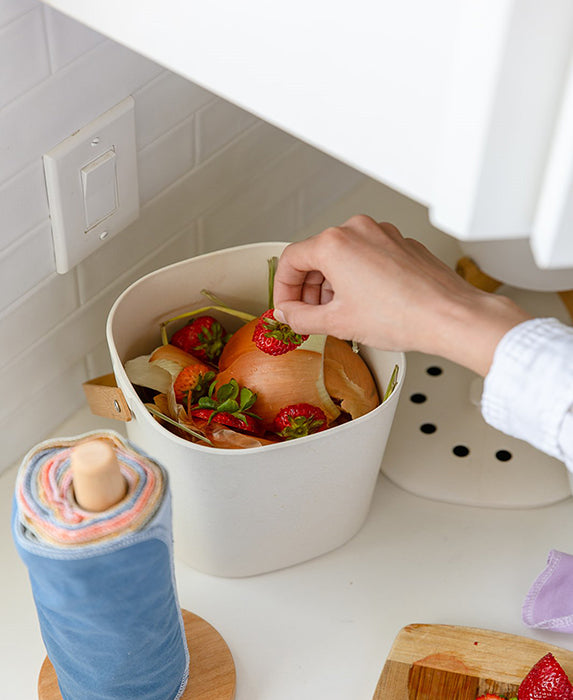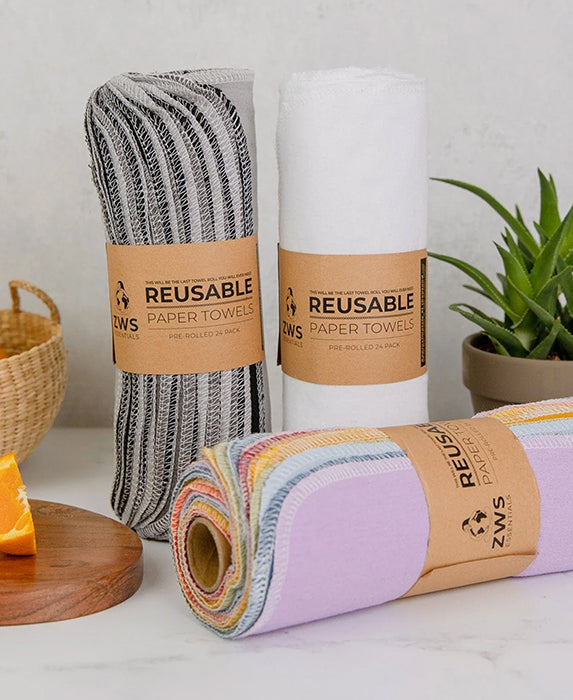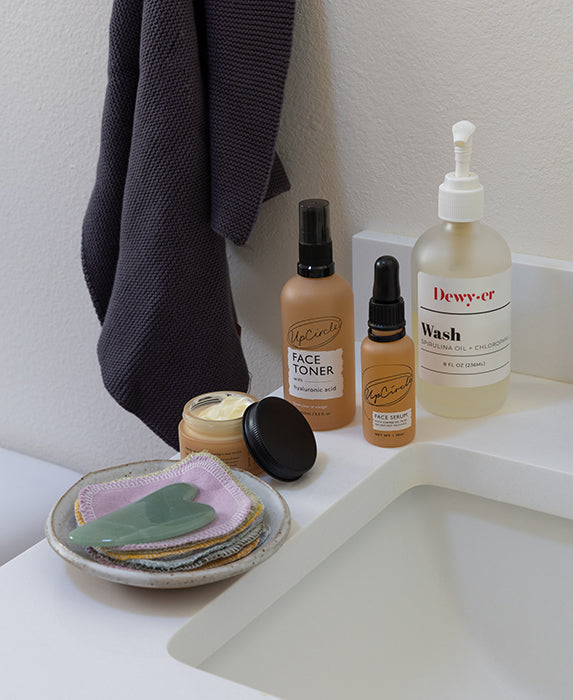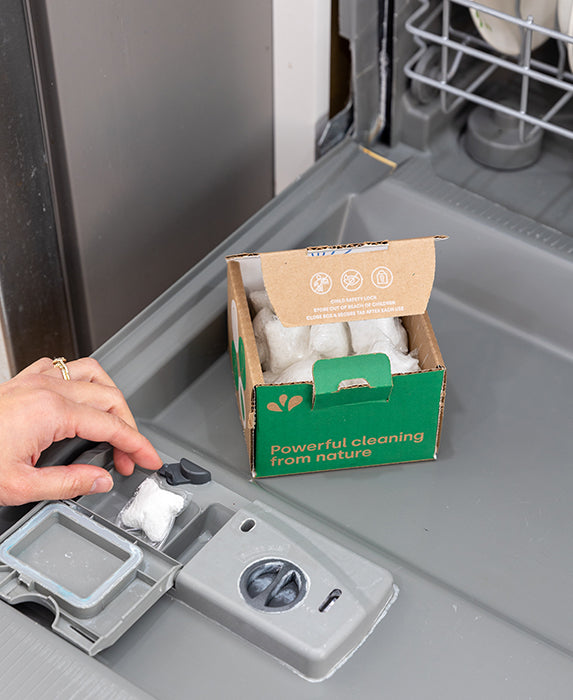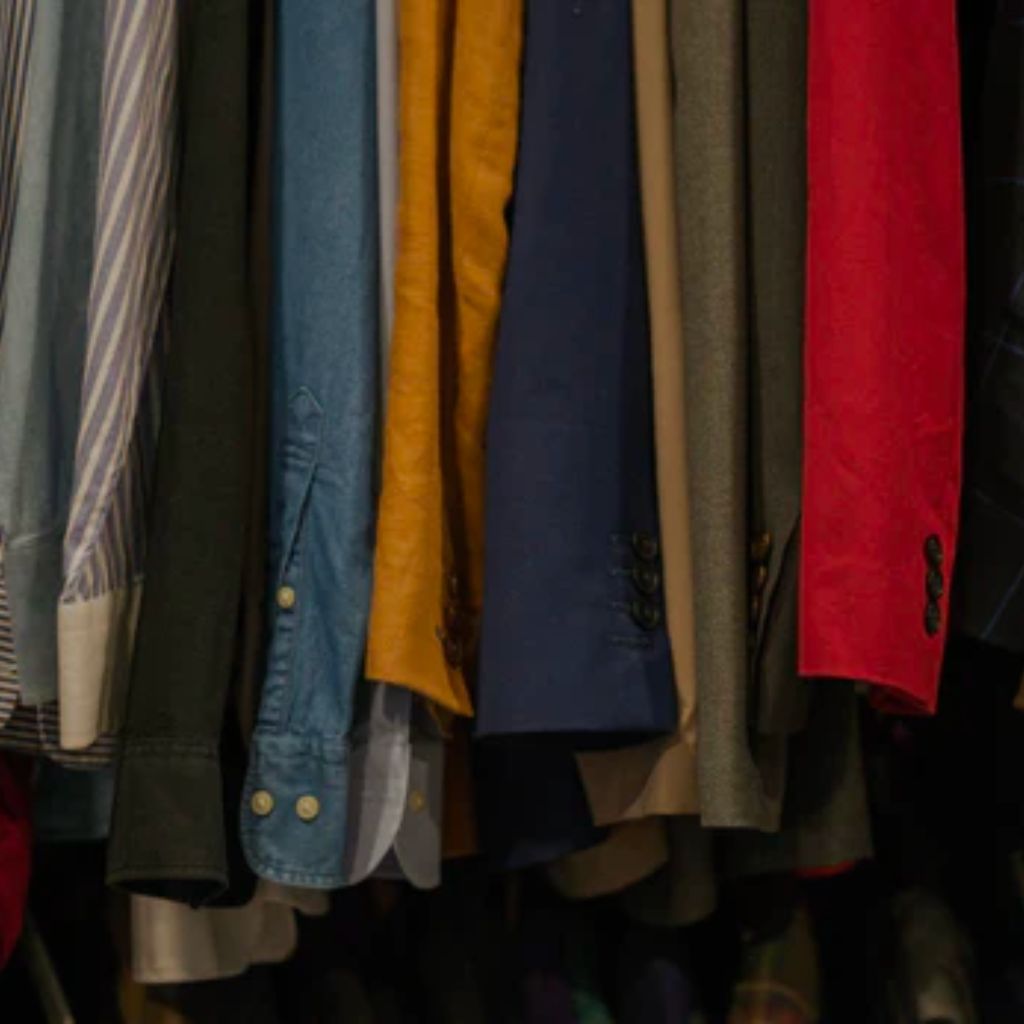Our world has become more interconnected than ever. With companies and countries alike shipping their goods halfway across the globe each day (sometimes ethically, sometimes not..) people have begun looking into the ‘how’ and ‘where’ their products traveled. But, this process of globalization has also inspired a counterculture movement that celebrates locally made, handmade, and small-batch goods over those shipped from far away places. But, which is truly more sustainable for our planet – fair trade, or Made in America – and why? Read on as we break down the pros and cons of each!
What you’ll learn:
- The 4 major types of fair trade certifications and what that means for the product or company certified
- The pros and cons of locally made, or American made goods
- How to make ethical and informed decisions when choosing between products that are fair trade or locally made
Fair Trade vs Made in America: Which is more eco-friendly?
Trading and bartering goods between communities has been a staple of human connection since the beginning of time. But with the rise of technology and transportation, the distance goods travel has stretched from village to village, to country to country. Today, you can get a package shipped from China to your house in less than a week (that’s over 7,000 miles!) This shift has cultivated a culture of “living local” where products and services within your city, state, or country are valued above those from other countries – most notably the push towards “Made in America” products. As this international expansion was occurring, global networks began crafting the concept of “fair trade” goods, ensuring that relationships with makers and suppliers of the product were based on respect, transparency, fair wages, and overall greater equity in international trade. Both Made in America and fair trade have upsides and downsides, and at EarthHero we’re all about asking mother earth how she feels. So in this blog post, we’re exploring which is really better for the planet? The surprising answer is… both.
Fair Trade Certified
When it comes to fair trade products, there are a few major players on the scene, all with similar but different regulations and guidelines for certification. We’ll break them down below:
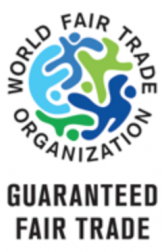
- World Fair Trade Organization (WTFO): this organization certifies an entire business, including supply chain, production, and distribution, to create Fair Trade Enterprises. These WTFO Certified enterprizes impact over 1 million lives, and 74% of those are women. These enterprises support and trade with each other, speak up collectively (power in numbers!), and collaborate together for greater impact. Spread across 76 countries, and thousands of products internationally, WTFO Fair Trade Enterprises are verified based on 10 main principles, and is one of the most rigorous verifications in the field.

- Fairtrade International: this organization, originally called FLO but now labeled Fairtrade International, was born with the intention to unite smaller national fair trade standards under one roof. They created the FAIRTRADE Certification Mark, which has standards that apply to both producers and traders of fair trade products. Their rigorous standards are set in accordance with the ISEAL Code of Good Practice on Standard Setting, and allow the standards to be updated and changed to reflect a changing culture.

- Fair Trade Federation: unlike the previous two organizations, which are international, the Fair Trade Federation is a trade association that promotes North American organizations with fair trade commitments to create equitable and sustainable partnerships with members of their supply chain. Over 200+ companies are involved, and they do have eligibility requirements based on their 9 principals, including a focus on long-term and direct relationships with small scale suppliers at the point of production, advanced payment to these suppliers, capacity building for supplier groups, and respect for cultural identity for farmers and artisans. As a membership-based organization, companies apply and self-report from a more holistic viewpoint on their mission and dedication to fair trade for their entire company versus on a single product. The FTF considers their process more of a ‘verification’ versus certification of the supply chain since third-party audits are not included in the application. Members pay annual dues and are required to have an annual review for ongoing membership.

- Fair Trade USA: so far, we have two certifications for the entire supply chain of a company, and one “verification” for the operations of a company. This leaves us with Fair Trade USA – a label seen a lot if you’re a consumer in America. This is an American-based, for-profit certification that certifies individual products, and not entire companies. That being said, they have strict guidelines about the social, environmental, and economic impacts of their certified products – and work with both producers, suppliers, workers, and farmers to ensure the product that is certified is truly ethical.
Pros & Cons
These various fair trade certifications have been used on coffee, clothing, produce, seafood, cosmetics and beauty, and so much more – letting consumers know that products that receive the label are a truly sustainable good. While the 4 certifications we’ve outlined here have their own pros and cons, they have the same goal: making ethical shopping easier for the consumer. But the certification helps much more than the consumer!
To put it simply, fair trade is a diverse network of producers, companies, shoppers, advocates, and organizations that are putting people in the supply chain first. Their mission is based on the simple concept that the products we buy and enjoy are deeply connected to the livelihoods of others, and by choosing fair trade products, you ensure a better way of life for everyone involved. Fair trade products emphasize 4 main points:
- Income sustainability: employees involved in creating the product must earn enough to fulfill basic household needs, regardless of changes in the market prices. Producers, workers, and farmers must earn enough to be able to invest back into their lives, and their businesses.
- Empowerment: fair trade products empower both consumers, and workers, to make choices for the good of themselves and our global communities, regardless of status, position in society, or location thanks to fair trade products being available in stores globally. Additionally, these rigorous standards give farmers, fishermen, and workers a voice in the global workplace – empowering them to make ethical decisions for their companies!
- Environmental stewardship: fair trade has a huge focus on sustainability and ethical production, and these practices have long-term impacts on the livelihoods of producers, the communities they operate out of, and generations of people to come. Fair trade standards promote slower, less mass-produced, methods of production, which in turn, result in a more positive environmental impact all around.
- Individual and community well-being: when individuals are financially stable, they are able to invest back into their communities and/or their workforce. This could mean better healthcare, cleaner water, a stronger economy, and so much more! Plus: very happy people. Yay!
But what about the transportation costs? This is the biggest issue we hear against fair trade products, in support of locally made ones. It is true that fair trade products often must travel longer distances to be sold in the USA, which comes with greater carbon emissions from transportation. But here’s the important part: most products cannot be entirely manufactured and produced in America, simply because we are limited to what we can grow or the resources we have. Bamboo requires a unique environment to grow in, and therefore, all bamboo must be outsourced to countries that have a climate it thrives in. Coffee is a great example of this as well, with almost all coffee being grown in the “coffee belt” that has the ideal conditions for amazing beans. We live in a globalized world, and it’s simply not feasible to only consume goods or produce that come from your country. The marketplace has to work for everyone – not just the top 1%. By supporting fair trade products by voting with your dollar, you tell companies everywhere that you value the lives of the people who made your product.

And it is already making a huge difference. The WTFO Fair Trade Enterprises report impacting 965,000+ lives, with 74% of those individuals being women, and report that 54% of the management or leading roles in these companies belong to women as well. 51% of board positions in Fair Trade Enterprises are held by women, and 52% of CEOs involved in the program are women as well. Last year alone, the Fair Trade USA Certification empowered over 950,000+ farmers and workers across 45 countries to reach more sustainable terms with their trading partners. Plus, consumer awareness around the Fair Trade USA Certified seal has reached 63% – nearly double what it was in 2008, and over 1,250+ responsible businesses’ are Fair Trade USA Certified. And this is just the beginning! Fair trade products are becoming easily recognizable on the shelf, even with the variety of certifying logos, and entire communities are being revolutionized because of these new standards.
And getting involved is easier than you think. Next time you’re at the grocery store, or shopping online, take a minute to look for a fair trade logo, or information about their ethical production or social responsibility. Truly ethical companies will be shouting it from the rooftops!
Made in America
Now, let’s look at the other side of the argument: locally made or “Made in America” products (note: EarthHero is based in the USA, and therefore we consider American-made to be local for us – but this varies) There has been a huge resurgence towards brands and companies that are local, with movements behind American-made vehicles, clothing, and locally grown produce.

As of now, there is only one major third-party certification for these types of products called Made in USA Certified®. It focuses on stimulating the American economy and job force and allows companies to label their products as “Made in USA”, “Grown in USA”, “Product of USA” or “Service in USA” depending on the percentage of the product that is American made. It is managed by CERTIFIED INC., a non-governmental independent organization, follows the Federal Trade Commission guidelines that state for a product to be labeled this way “all or virtually all” parts of the product manufacturing, including processing and labor, must be of U.S. origin.
Some benefits to shopping truly locally made, or Made in America products include:
- American made products support over 17 million jobs across the nation and contributes over 12% to GDP – supporting a healthy American economy and low unemployment rate
- At a grassroots level, supporting American businesses (especially small businesses!) reinforces the strength of local communities, and provides jobs to future generations
- Buying locally, or within your country, will help reduce harmful carbon emissions that result from global transportation, and often require less shipping packaging as well
- America has relatively stricter labor laws and safer working conditions, which foreign companies without third-party certifications or memberships may not be able to guarantee
Despite the fact that a major organization is managing the American certification process, many companies can make this claim on their products without the proper background information – and consumers often times won’t be able to know the difference. Additionally, other certification groups like Made in USA Brand are offering a less stringent “certification” which allows brands to “self-certify” these claims, which opens the doors to distrust and misinformation. Another major issue is that the main certification, Made in USA Certified®, only promises that the products were made in the country – and does not enforce strict guidelines for income sustainability, social responsibility, or employee empowerment like the various Fair Trade Certifications do. And while America has relatively strict workplace guidelines, they are still not as forward-thinking and inclusive as the labor guidelines assigned to fair trade companies, which could mean American workers are not feeling empowered or supported.

How to Choose
Okay: we definitely just threw a ton of information at you. And you’re probably wondering… what do I do now? How do I shop, and what do I support? And the answer isn’t black and white.
At EarthHero, we believe that both fair trade and Made in USA Certified products are great – and most certainly better than shopping for a product that doesn’t have either affiliation. When it comes to a particular item you want, think about the materials & manufacturing that would go into it… and then decide if it would be more beneficial to get made locally, or imported in an ethical way. Take for example a bar of soap, which contains ingredients that can be sourced nearly anywhere on earth. If you had to choose between a Made in America soap bar, or a fair trade soap bar, you could assume the locally made one will be more eco-friendly due to transportation emissions and bringing jobs to American businesses. But… if you’re shopping for a product that requires ingredients/materials that are almost always shipped from another country (think coffee, rubberwood, etc), fair trade is probably the way to go.
By shopping for both certifications depending on what product you want, we support not just a healthy and sustainable America… but the whole world, too! In the age of globalization with the internet, modern transportation, and specialization of skills between countries, we have to work together to achieve the future we want – and that means looking beyond where we live.
What do you prefer to do in your own life? Which is easier for you to find – locally made products, or fairly imported products? What do you think? Share it in the comments below, or share it with a friend to spark a new eco-conversation!

